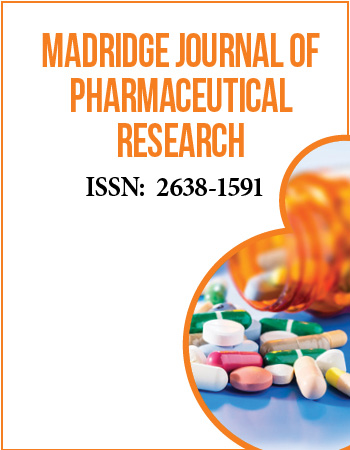International Conference on Medicinal and Pharmaceutical Chemistry
December 5-7, 2016 | Dubai, UAE
Potent antihyperglycemic and hypoglycemic effect of Tamarix articulata Vahl. in normal and streptozotocin-induced diabetic rats
Moulay Ismail University, Morocco
The purpose of this study was to investigate the effect of a single dose and daily oral administration for seven days of the aerial part aqueous extract (A.P.A.E) of Tamarix articulata Vahl. (T. articulata) at a dose of 5 mg/kg body weight on blood glucose levels in both normal and streptozotocin-induced diabetic rats (STZ). Single oral administration of T. articulata A.P.A.E reduced blood glucose levels 6 h after administration in normal rats and STZ diabetic rats (p<0.0001). Furthermore, blood glucose levels were decreased in both normal and STZ diabetic rats after seven days of treatment (p<0.0001). Moreover, no significant changes in body weight in normal and STZ rats were shown. According to the oral glucose tolerance test, the aqueous extract of T. articulata (20 mg/kg) was shown to improve significantly the increase on blood glucose levels in normal treated rats (p<0.001) 90 min after glucose administration as compared to the control groups. Finally, histopathological analysis revealed the beneficial effect of T. articulata on pancreas and liver. In conclusion, this study demonstrates antihyperglycemic and hypoglycemic affects of T. articulata in severe diabetic state thus warrants further investigation on its major compounds with in depth mechanistic studies.
Keywords: Tamarix articulata; Streptozotocin; Histopathological changes; Liver; Pancreas; Aqueous extract; Glucose tolerance; Blood glucose.
Funding: This work was supported by the CNRST under grant n° PPR/2015/35.
Biography:
Mohamed Eddouks is Professor at Moulay Ismail University, Faculty of Sciences and Techniques Errachidia, Morocco. He is a researcher in Physiology and Pharmacology with a Master Degree in Metabolic and Molecular Endocrinology from University of Paris vi, a specialized certificate in Endocrine Pharmacology from University of Paris vii and PhD degrees in Physiology and Pharmacology from University of Liege, Belgium and Sidi Mohammed Ben Abdellah University, Fez, Morocco. After his post-doctoral fellowship at Department of Physiology, Faculty of Medicine of Montreal, Canada, he is working for the last 16 years on medicinal plants. His work on antidiabetic and antihypertensive plants is well recognized globally. His research focuses on ethno biological as well as pharmacological issues in the use of Moroccan medicinal plants for the treatment of diabetes mellitus, obesity and hypertension. His contribution to this field includes four international books and more than 80 peer-reviewed articles and book chapters of international repute. He is Guest Editor of American Journal of Pharmacology and Toxicology, Lead Guest Editor of an annual special issue published by Evidence-Based and Complementary Alternative Medicine, Regional Editor of the Following journals: American Journal of Food Technology, Journal of Applied Sciences, Trends in Applied Sciences Research and Singapore Journal of Scientific research, Member of Editorial Board of several international journals. He has been honored with the first Prize of Scientific Research in 2008 by the Moroccan Association of Research and Development and the first Prize of the Federation of Arab Scientific Councils in 2016. He has been the Dean of Polydisciplinary Faculty of Errachidia from 2008 to 2012.


